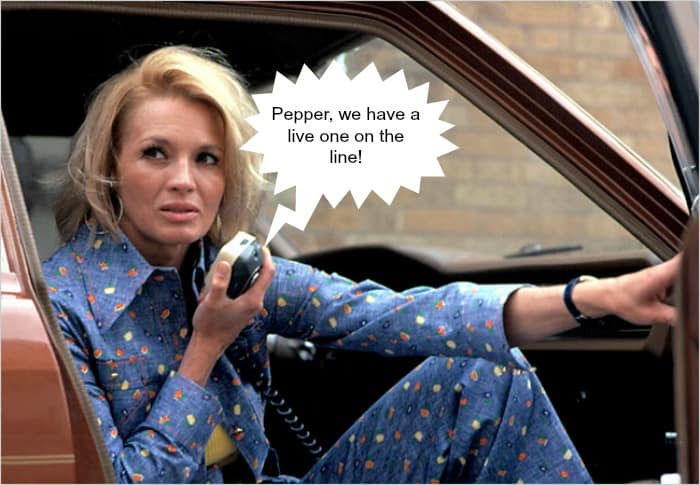Common (Sixth) Sense is a regular feature devoted to practical uses of intuition. Making intuition simplistic for everyday mystics.
By now, you’ve probably heard about “catfish”. No, not the fish, but the internet kind: people who post fake profiles on social media sites such as Facebook.
The term comes from the movie and tv series starring Nev Schulman, who was the victim of a “catfish”. (If you have not seen either, I recommend you do. It will give you some insight into how these online fakers operate.)
Many people may never come across one of these phony profiles, but, for those who do, these frauds can wreak immense havoc (mostly emotional).
I’ve come across a catfish in my time on the web and I’ve met others who have as well – and here’s something very interesting: every one of us had a gut feeling that something was “off” from the get go. It’s easy to ignore that hinky feeling, especially if that person seems nice or popular. (Or, if like many people I talked to, you don’t want to be seen as “judgmental”.)
These cunning perpetrators are counting on their charm to distract you into ignoring those red flags.
In my situation, after that initial niggling feeling, I started paying very close attention to the inconsistencies in my catfish. It didn’t take long before I had a whole lotta stuff not adding up. Throw in a little research and bingo – I had my proof and extricated myself from that relationship quickly and cleanly.
If you want to remain safe online, you’ll need to start listening to your sixth sense and channeling your very best Pepper Anderson (Angie Dickinson’s character in Police Woman).
Here’s what you need to know about spotting a catfish:
- They will refuse to meet you face to face. This is a HUGE red flag and your most important clue. If they won’t even Skype, you know something is rotten in cyberworld. A common excuse: my webcam is broken. Don’t buy into that. They do not want to be seen because then the con is over.
- Pictures often give it away. Pay attention to their pictures. Do they only have a few and do those look like modeling shots? Are there pictures with their family and friends – and are those tagged? Do the pictures look recent or like straight out of the 80’s? Do they ever have pictures from industry events or meeting with other online friends that you share? If you are suspicious about their photos, you can use Google images to find the source of those pictures: http://www.google.com/imghp This is how I found out that my catfish was using stock photography to represent himself.
- They tell grandiose stories (celeb friends, million dollar homes, famous lovers, etc.) and have the biggest excuses on the planet (sickness, family member dying, etc). Scratch any catfish and you’ll find a pathological liar underneath the surface. Pathological liars love to tell huge, overblown, dramatic stories. They exaggerate their pain, their fame, their wealth, and their personal lives. If your online acquaintance starts telling you something that feels like complete bullshit, it probably is.
- They try to get close to you way too quickly and they love to flatter. If they are coming on too strong, be on your guard!
- They share secrets about other people. Catfish will often talk smack about other people to build themselves up and to create alliances. By creating suspicions around other people, you’re less likely to contact them and discuss the catfish. Divide and conquer is a method to preserve their fraud.
- Their stories are inconsistent. If you are a good listener, you’ll begin to notice those conflicting details. That’s how I pieced together my catfish’s lies – I listened like a cop and took notes. Start researching anything that feels inauthentic (Google is amazing – and most catfish leave a trail. My catfish had a twenty year history of false profiles and it was easy to trace). Don’t be afraid to point out any contradictions. In fact, put your catfish in the hot seat and on the defense and watch how they react. It’s often very telling. Once they begin to suspect you are on to them, they will usually end the friendship (and of course, tell anyone who’ll listen that you threw them under the bus).
People create fake profiles for many reasons (love, loneliness. money, crime, the thrill, etc.). No matter what their motive is, it’s dead wrong. While it may not be illegal to impersonate someone, it’s unethical and cruel.
You can avoid being taken advantage of one of these creeps if you simply trust your instincts and put on your detective’s cap. Always remember, your intuition is usually right and it’s present to protect you. The next time you get a funky vibe from some internet buddy, start doing your homework. It may just save you a whole lotta aggravation and embarrassment down the road.
“It’s not very nice to be where people are being swindled all day long, is it?” ― Nevil Shute
Stay safe on the internet, peeps!
Theresa
© Theresa Reed | The Tarot Lady 2014
Did you ever come across someone with a fake profile? What was your first clue? Was it just a “gut feeling”? Share your story in the comment section below:



 I’m Theresa Reed (aka, The Tarot Lady). I’ve been a full-time tarot reader for 30+ years — which, in my industry, makes me pretty badass.
I’m definitely not your average Tarot expert — I drop the F-bomb, I quote rappers, and I’m obsessed with pop culture + reality TV. Folks come to me for straight-talk + tough-love — without the woo-woo fluff.
I’m Theresa Reed (aka, The Tarot Lady). I’ve been a full-time tarot reader for 30+ years — which, in my industry, makes me pretty badass.
I’m definitely not your average Tarot expert — I drop the F-bomb, I quote rappers, and I’m obsessed with pop culture + reality TV. Folks come to me for straight-talk + tough-love — without the woo-woo fluff.
You must be logged in to post a comment.